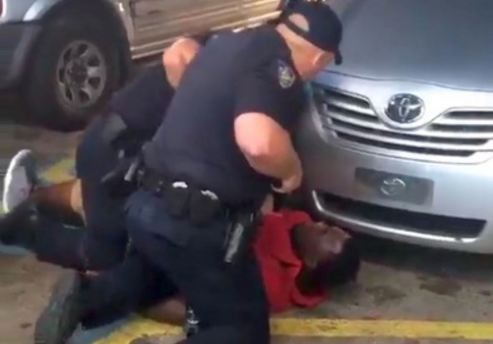A United Nations working group has concluded the slave trade in the United States was a crime against humanity and the U.S. government should now pay reparations to African-Americans and apologize for this crime.
This unit, the "United Nations Working Group of Experts on People of African Descent," was created 14 years ago. It's part of the Human Rights Council under the UN High Commissioner on Human Rights (OHCHR). Human rights expert Ricardo Sunga III from the Philippines is chairman of the working group.
In a report issued this week, the Working Group said it "is deeply concerned at the alarming levels of police brutality and excessive use of lethal force by law enforcement officials, committed with impunity against people of African descent in the United States."
It cited the "killings of unarmed African Americans -- such as the cases of Eric Garner, Michael Brown, Tamir Rice, Walter Scott, Freddie Gray and Laquan McDonald."
It was concerned about the "persistence of a de facto residential segregation in many of the metropolitan areas in the United States," and pointed out unemployment for African Americans "is almost twice the national unemployment rate."
The report advocates legislation encouraging the U.S. Congress to pass the "Commission to Study Reparation Proposals for African-Americans Act."
This bill "would establish a commission to examine enslavement and racial discrimination in the colonies and the United States from 1619 to the present and to recommend appropriate remedies."
It urges the United States to consider seriously "a formal apology, health initiatives, educational opportunities, an African knowledge program, psychological rehabilitation, technology transfer and financial support, and debt cancellation."
Sunga told reporters the group feels several models of reparations could work in the U.S. context, including "elements of apology" and a form of "debt relief" to descendants of enslaved African-Americans.
Last July, Sunga, speaking for the OHCHR, strongly condemned the police killings of unarmed African-Americans Alton Sterling and Philando Castile.
Sunga said the killings demonstrate "a high level of structural and institutional racism" in the US. He noted "the United States is far from recognizing the same rights for all its citizens. Existing measures to address racist crimes motivated by prejudice are insufficient and have failed to stop the killings."
The working group also found the US is facing a "human rights crisis" largely fueled by impunity for police officers that continue to kill unarmed black men across the country."
Those killings "and the trauma they create are reminiscent of the past racial terror of lynchings," said the report, which was presented to the United Nations Human Rights Council on Sept. 26.
Last July 5, Sterling, a 37 year-old black man, was shot several times at close range while held down on the ground by two white Baton Rouge Police Department officers in Baton Rouge, Louisiana. The police officers involved in the shooting were Howie Lake II and Blane Salamoni. Both been previously investigated and cleared by their department for use of excessive force.
On July 6, Philando Castile was fatally shot by Jeronimo Yanez, a St. Anthony, Minnesota police officer, after being pulled over in Falcon Heights, a suburb of St. Paul. Diamond Reynolds, who was in the car with him along with her daughter, recorded Castile bleeding to death from four gunshot wounds after he complied with Yanez' order to raise his hands.



























